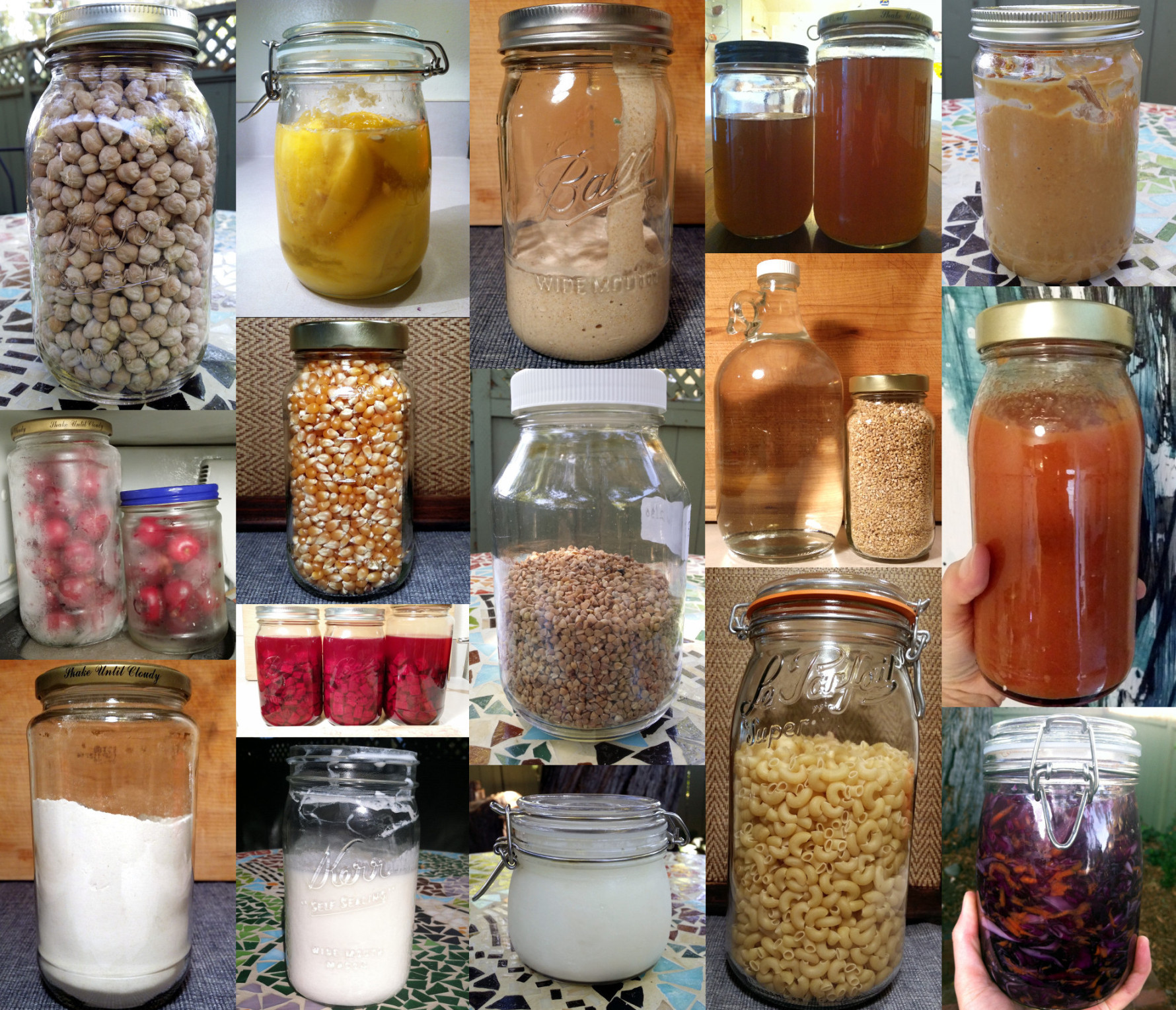Can you cut 1 Tonne of carbon pollution out of your life?
Take the challengeThis recipe is from the Zero Waste Chef.
I love my (nearly) zero-waste kitchen routine. I eat a delicious, healthy diet and have simplified my shopping habits. But it did take me a couple of years to (nearly) perfect this routine and I may never achieve complete zero-waste. (Remember calculus class? You merely approach zero.)
When I shop at the bulk store, for example, I still indirectly generate a small amount of waste. The food arrives at the store in paper or (gulp) plastic packaging after all. Also, I refuse to give up butter and the paper does go in the trash. So, until I buy a farm and produce all my food myself, I will create some waste somewhere. Then again, if I live on a farm outside the city, I'll have to drive everywhere and burn more fossil fuels…So, I suppose as a precursor to these tips, I should add—above all—don't strive for perfection. That and cook everything yourself. "Cook everything yourself" is my number one rule of life.
1. Shop with reusable containers and bags
Before I go shopping, I figure out what I need and accordingly organize my:
- Glass jars for bulk items like flour, seeds, nuts, spices, tea, honey, coconut oil and so on
- Metal containers, such as Lunchbots or tiffins for meat and fish
- Cloth shopping bags and homemade cloth produce bags for produce and bulk foods like pasta or cat food
Different stores deal with containers in different ways. Some set scales out in the bulk section for you to weigh the empty containers and mark the tares on them. You don't want to pay for the weight of a heavy glass jar when you buy bulk tea at $39 a pound (I know). At other stores, customer service will weigh the jars for you. At yet other stores, your request will completely baffle the staff.
Gathering my jar-, container- and bag-filled bags adds a few minutes to my routine but it also saves time in the long run. I have nothing to throw out after we eat everything, which saves me a trip to the curb. Plus, food in glass just looks nice.

2. Hit the bulk aisle
I live close to three stores with decent bulk sections, which makes zero-waste shopping easy. I've heard from a few people in the UK that bulk bins aren't very common there. If you can't buy from bulk bins, and need lots of, say, flour, buying large amounts of it reduces your packaging to product ratio. Maybe you can share with a neighbor who digs the zero-waste idea.
3. Buy fewer ingredients
I buy lots of baking soda. I use it for baking, washing pots and pans, cleaning, washing my hair and making deodorant. I make several dairy staples from milk plus one other ingredient. If you run out of something, you may find a fix in your kitchen cupboards. For example, you can make baking powder out of cream of tartar (4 parts) and baking soda (1 part). Before I cultured buttermilk, I often "made" it with milk and fresh lemon juice (1 scant cup milk plus 1 tablespoon lemon juice). If you want to go zero-waste, buy less stuff.
4. Think twice before you by another gadget
My kids think I'm strange because, for one, I refuse to own a microwave. I don't have room for a bunch of appliances in my kitchen. And I probably don't need what I don't already have. Besides, there's always Google. My daughter MK last year bought a cherry pitter that looked like it would break in about 2 minutes. While she returned it to the store, I found instructions online for a DIY cherry pitter that works like magic!

5. Ditch the disposables
My mom wonders how I run a kitchen without paper towels or plastic wrap. Having had two kids, I have enough too-small cotton t-shirts to make rags that will last me the rest of my life. As for plastic wrap, plates on bowls work. I also have a few Abeego Wraps, beeswax coated cloths that cling to dishes. (In the fridge pic at the very top, you'll see one on the middle shelf, to the right). I sewed napkins on my serger about six or seven years ago and we still use them. I take a mug with me every time I go work at my favorite cafe, Philz.
Read more: DIY Reusable Beeswax Wraps
6. Recycle as a last resort
When plastics are recycled, they are actually downcycled—meaning even when reincarnated as toothbrushes, shopping bags or more plastic bottles, the plastic ends up in landfill eventually, unlike glass or metal, which can be recycled over and over without any degradation in quality.
You may have heard of America Recycles Day, a day designated to encourage us to put plastic water bottles into the recycling bin. Who dreamed it up? Industry. You can check out the sponsors here. One, the American Chemistry Council, a trade association, keeps attempting to convince me in my Twitter feed that BPA is wonderful (it's not). So Big Soda makes a big mess and encourages us to clean it up, which doesn't actually work. Better to cut off the trash at its source and refuse all this plastic junk.
7. Compost differs from waste
For me, zero waste means zero trash and zero recycling (because you buy so little in packaging). I exempt compost from the category of waste. That doesn't mean I buy more food than I can eat or throw edible food on the compost heap. In fact, even my vegetable scraps don't make it to the heap until after I've made broth out of them. Occasionally I find the odd furry lemon or a puddle of what-had-been-parsley in the back of the fridge. The good news is that compost can save the world! It sucks carbon out of the air and not only that, a half-inch layer of this black gold can still increase yields six years after its application, as Michael Pollan explains in the video below. The video lasts about half an hour, but is well worth the time.
Read this next: How to: successfully grow your own tomatoes at home
Anne Marie Bonneau writes the blog The Zero-Waste Chef. She runs her kitchen following three simple rules: no packaging; nothing processed; no waste. Anne Marie lives in Northern California, where she teaches fermentation workshops, speaks on zero-waste and plastic-free living and hosts webinars on these topics. You can follow her on Facebook, Instagram and Twitter at @ZeroWasteChef .
